Elections 2021: Can Welwyn Garden City balance original vision with new housing?
- Published
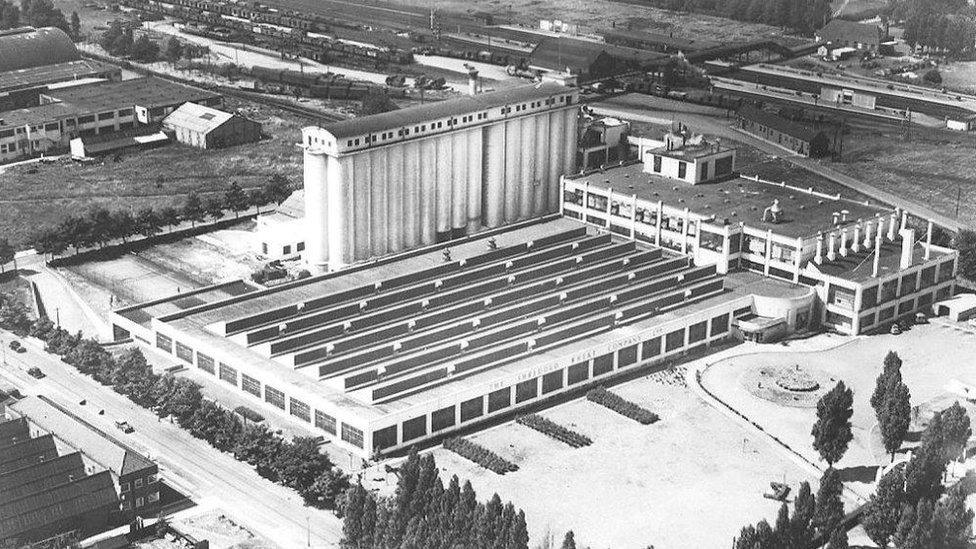
Opened in 1926, Shredded Wheat came to Welwyn Garden City attracted by the clean air and space for a substantial factory
When Welwyn Garden City was founded 101 years ago, it was based on elegant boulevards and open green spaces. More than a century on, how can it balance staying true to its original principles with the modern demands for continued growth?
Last year was supposed to be a year of celebration for the town, as it marked 100 years since it was founded in April 1920 - but most of the planned events had to be modified, postponed or cancelled due to the Covid-19 pandemic.
Now a town of about 50,000 people, one of Welwyn's biggest election issues is concern over plans for what could be more than 2,000 new homes on the former Shredded Wheat site along Broadwater Road, as planners and developers aim to respond to housing needs while respecting its past.
Welwyn Hatfield District Council has 48 seats, with about one-third up for election on 6 May. The candidates for Peartree ward, where the development is based, have spoken to the BBC about whether they believe Howard's vision remains intact in the plans.

Origins of Welwyn Garden City
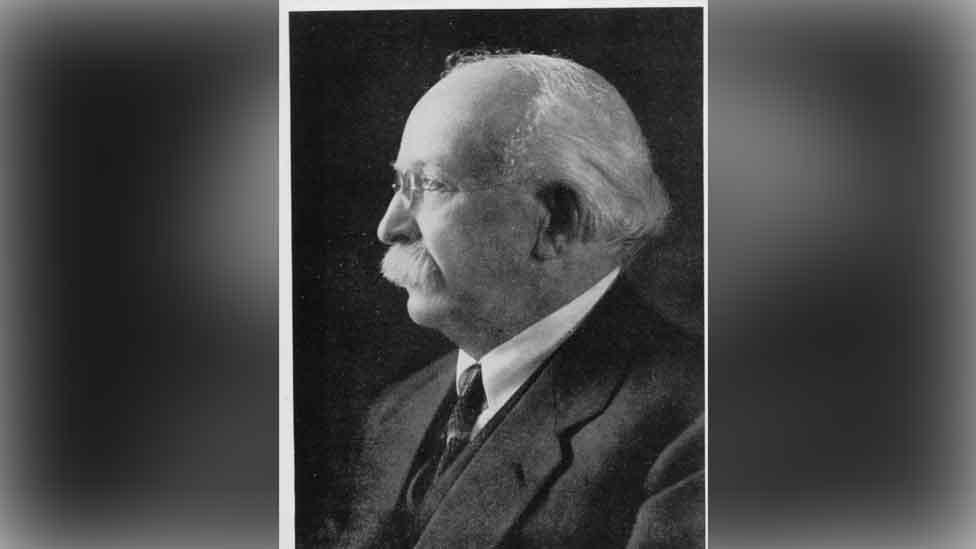
Sir Ebenezer Howard (1850-1928) lived and died in the town he created
Ebenezer Howard set out his belief that good-quality housing was essential to a good quality of life in his 1898 book A Peaceful Path to Real Reform or Garden Cities of Tomorrow
He wanted properly planned towns, combining the advantages of both cities and the countryside while avoiding the disadvantages, and thought they should be fixed in size and have a green belt of land around them
After his first project, Letchworth Garden City in 1903, he bought 590 hectares (1,458 acres) of countryside near Welwyn village in 1919 for his second town and Welwyn Garden City was officially founded on 29 April 1920
Letchworth architect Courtenay Crickmer designed the first houses but eventually Louis de Soissons was recruited and produced a master plan, characterised by neo-Georgian buildings, elegant boulevards and open spaces

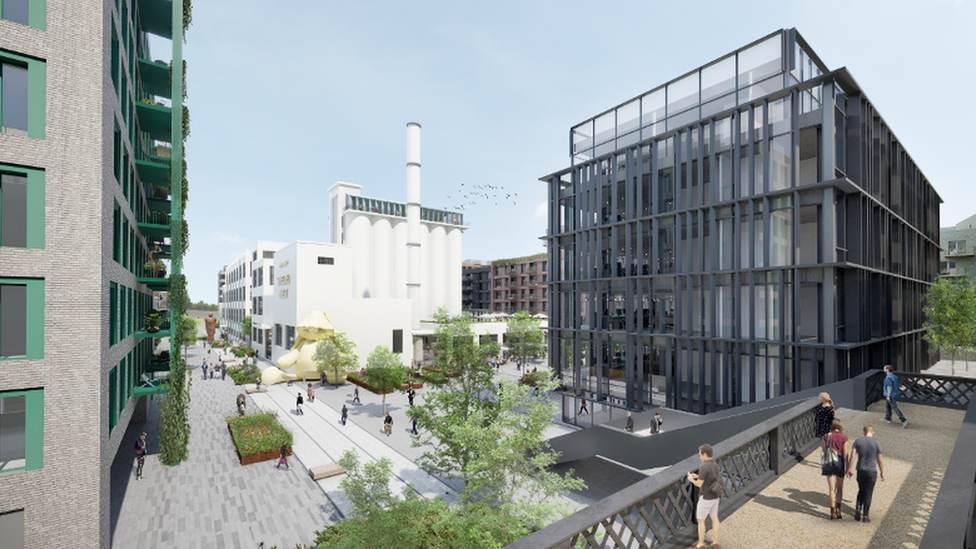
There were 811 homes approved in the original 2019 plan for the Wheat Quarter north site, though the new plan would bring this up to 1,220
What is planned for the town?
There is strong local opposition to three developments to the east of the railway station on the former factory site, an area of about 16 hectares (40 acres).
In 2019, permission was granted for about 1,500 new homes and other buildings across two sites, the North Side, owned by the Wheat Quarter business, and Metropolitan Thames Valley Housing's (MTVH) South Side.
Work has already started but since then, further plans have been submitted for approval - including the HG Groups' Broadwater Gardens - which could bring the number of new homes to more than 2,400, with some blocks due to be about 10 storeys tall and some of the planned green spaces filled in.
Welwyn Hatfield Council has said the de Soissons-designed Grade II listed silos are "closely identified with the town", and has indicated, external that any subsequent buildings there should not be more than five storeys high, so they "remain as a landmark feature".
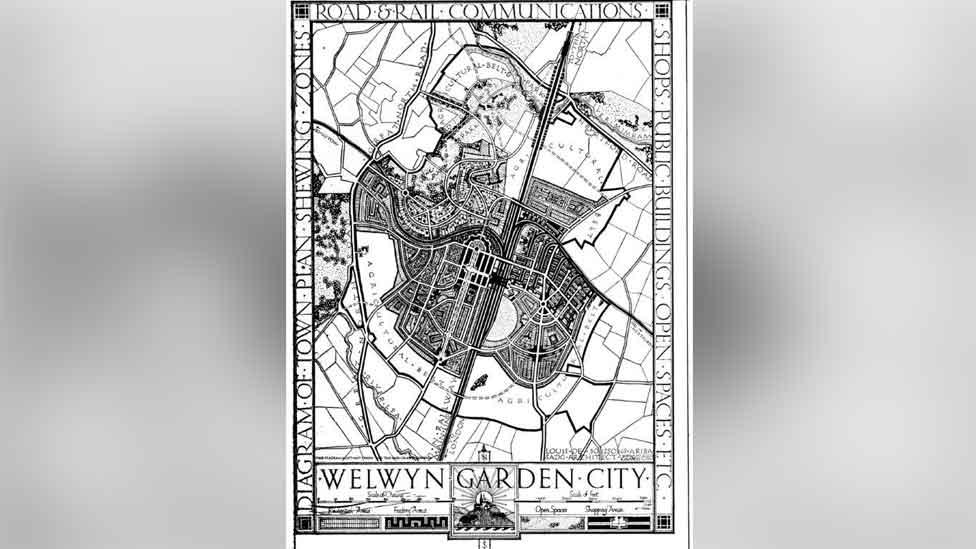
Architect Louis de Soissons produced his master plan for Welwyn Garden City in six weeks
The Welwyn Garden City Society (WGCS) said about 2,500 residents have officially registered objections to the latest "densification" proposals.
Clive Wilson, from the society, said: "Sir Ebenezer Howard would be appalled at the enlarged proposals for development. The dense high-rise living, with limited access to external space, is the antithesis of the low density 'marriage of town and country' that he proposed."
What do the developers say?
One of the developers, Wheat Quarter, said Howard's aim to address social, environmental and economic problems through urban planning "remains at the heart of today's planning system", but today's "challenges are immeasurably different" given the world's climate emergency.
A spokesman said the site's redevelopment brought homes and commercial development together in "the most sustainable location in the district to reduce the need to travel and enable people to live and work more sustainably".
Metropolitan Thames Valley Housing (MTVH) said it was "committed to delivering a thriving and sustainable community", with "accessible and affordable" homes.
It said its new planning application would deliver a minimum of "almost 300 affordable homes", alongside the 208 already planned for phase one. It added the buildings were appropriate for the "gateway location" and the design and architecture would contribute to the town.
An HG Group spokesman said Howard's principles had been "central to the design ethos of the [Broadwater Gardens] scheme" which was designed to be an "aesthetically pleasing landscape-driven residential development".
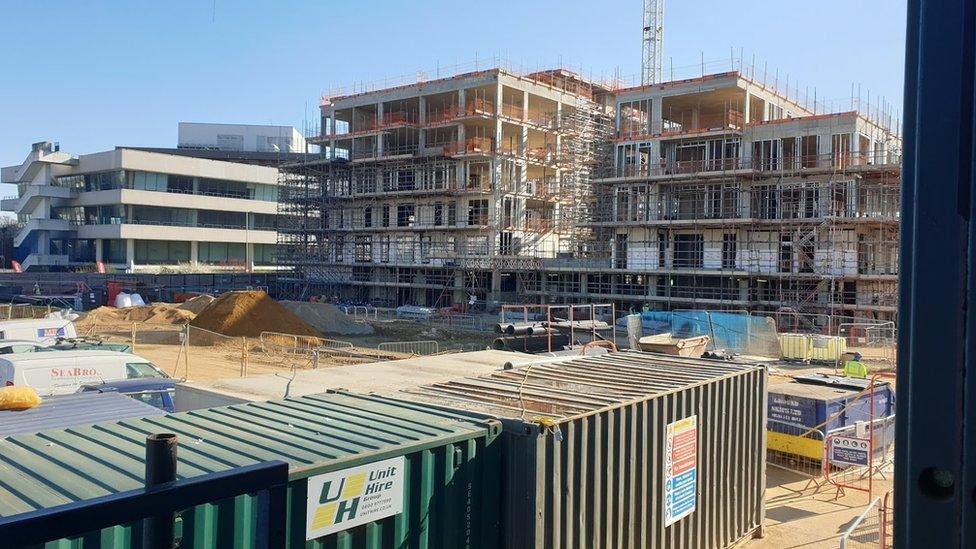
The building of about 1,500 homes has already started in the Wheat Quarter
'We need genuine affordable housing'
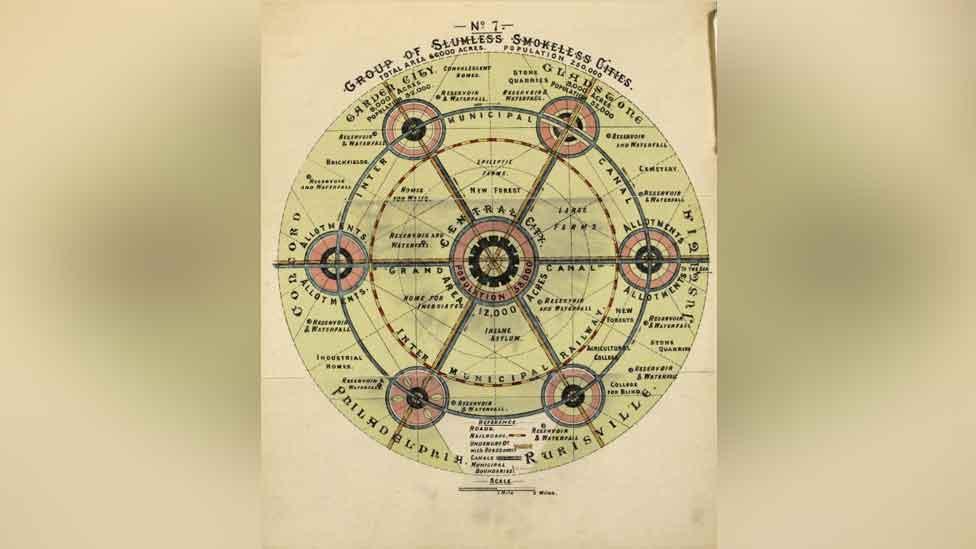
Ebenezer Howard imagined the development of garden cities as being a group of "slumless, smokeless cities"
Green Party candidate Nicola Chapman said Howard's aspirations for low-density development were "still the principles we should be aspiring to" but housing needs must be considered.
"The Green Party supports the provision of more housing with the emphasis on the need for genuine affordable housing," she said.
"The development at Broadwater needs to ensure that it adheres to the council housing policy that 30% of the build should be affordable housing of which half must be social rent," she said.
She said she believed the current numbers of new homes that were going to be for rent and shared ownership was "just not good enough".
Ms Chapman said options for an alternative are "relatively limited" due to housing challenges but it was of "utmost importance" to "listen to the residents' concerns".
'Back to the drawing board'
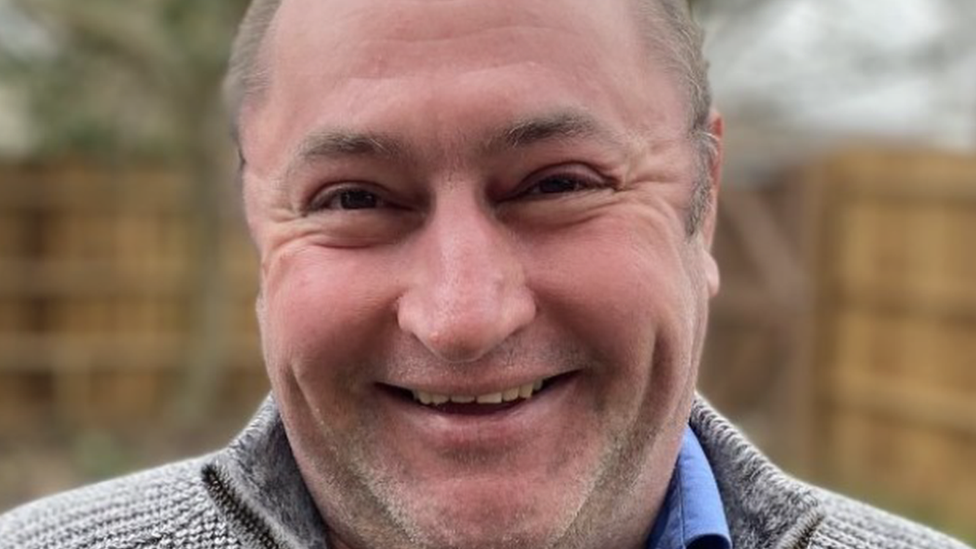
The proposed developments are opposed by Conservative candidate Hamish Haddow
Conservative candidate Hamish Haddow said he thought Howard "wouldn't be in favour [of the proposed developments] at all and neither am I".
"I don't think it's at all in line with what Howard wanted, to turn an area that was supposed to have green space into a high-density living area," he said.
"But what was originally agreed and what is now being proposed are two different things," he said.
"We need to go back to the drawing board, look at what was agreed right at the beginning, make a proper plan and then let local residents have a say.
"To turn the area into a high-density living area would have a massive effect, not just on residents but police, school, shopping, hospitals, everything."
'His principles have been neglected'
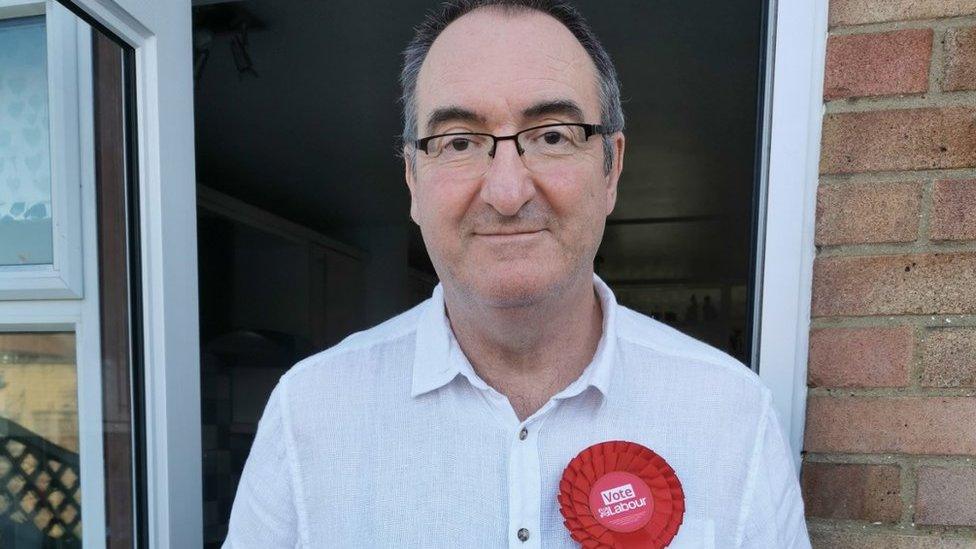
Labour candidate Steve Iwasyk calls them "the antithesis" of Howard's vision
"I don't think Ebenezer Howard would be very happy if he were to look at Welwyn Garden City now, what is being planned for it and how the principles of his vision have been neglected," said Labour candidate Steve Iwasyk.
"Developments such as these are the antithesis of Howard's garden city ethos.
"Tightly packed housing that doesn't provide the places where families can thrive, and everything is designed to benefit private interests over the needs of the community.
"Too many seem to have forgotten the rationale for garden cities was to provide a better quality of life for the poorer sections of society trapped in unhealthy environments.
"We have to do better and I am determined to help the residents of Peartree in making this an area fit to be included as part of the garden city."
'Howard would be appalled'
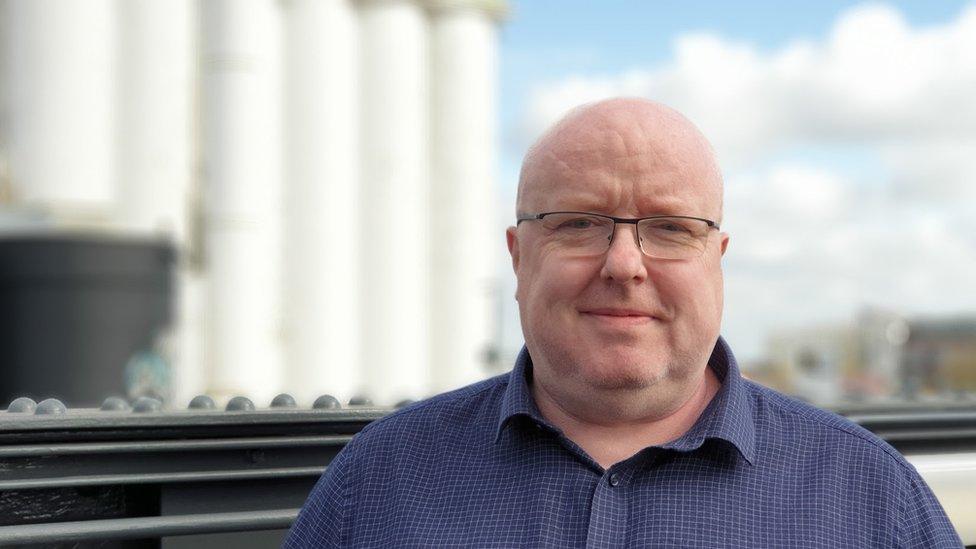
Russ Platt, the Liberal Democrat candidate, wants to "temper" what is being planned
Liberal Democrat Russ Platt said: "I think Howard would be happy where we are but not happy about where we're going... he'd be absolutely appalled by the current plans.
"He was pro-development but not an advocate of tower blocks with no light and 3,000 people living there. It is so far away from his vision."
Mr Platt, who lives in Broadwater Road, said his goal would be to "temper and bring down what they're proposing and stop it becoming a sprawling urban mess".
"There are too many [dwellings] without adding schools and other infrastructure," he said.
"There's no doubt that if an 11-storey building is approved here then another one would be approved elsewhere and I want to make sure planning decisions relate to [Howard's] vision."
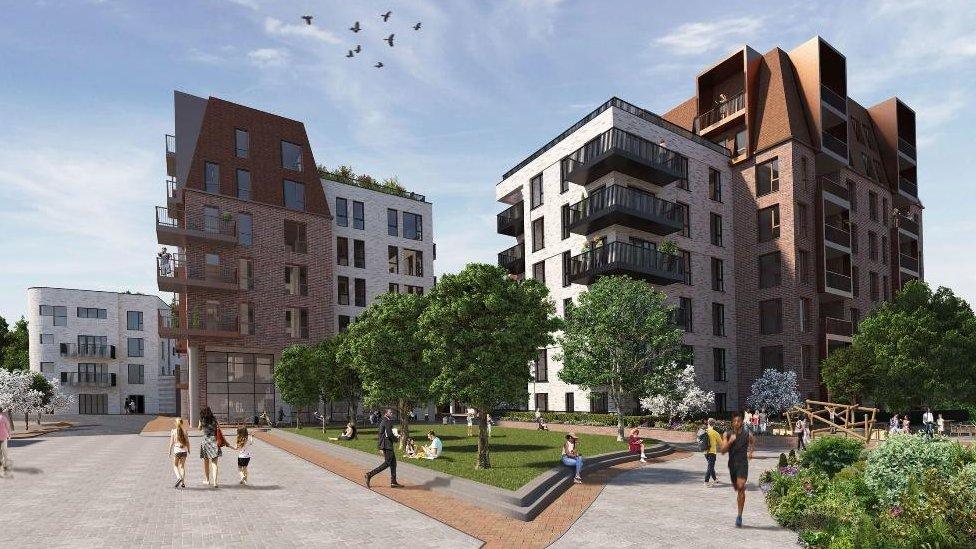
The 289 homes planned for Broadwater Gardens, on the now derelict BioPark building site, each have their "own character inspired by Welwyn Garden City architecture", developers say
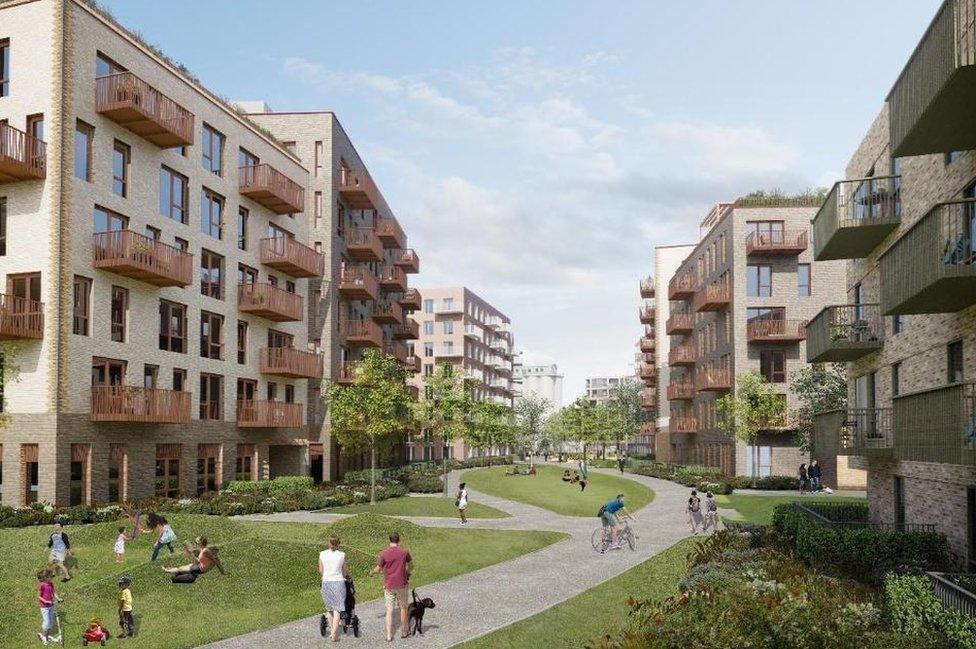
The first 208 of 648 homes that received planning permission are being built on the south side and MTVH has since applied to make the total 929

Find BBC News: East of England on Facebook, external, Instagram, external and Twitter, external. If you have a story suggestion email eastofenglandnews@bbc.co.uk, external
Related topics
- Published14 April 2021

- Published29 April 2020
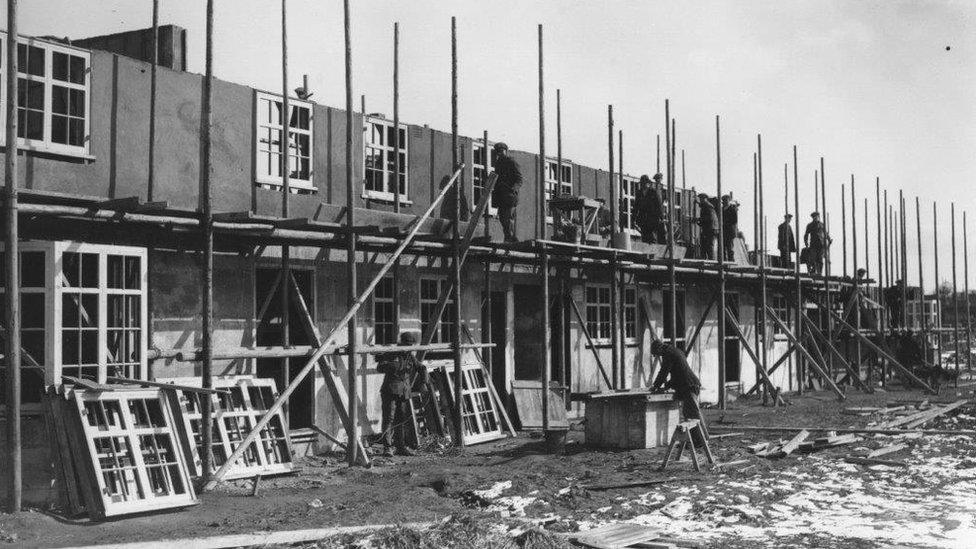
- Published1 January 2020

